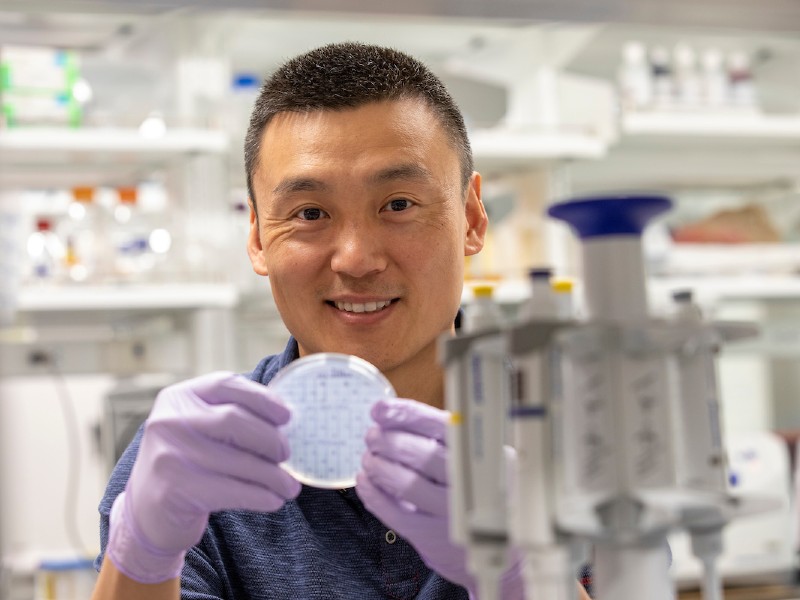Xin Wang
My Approach to Teaching and Learning
Nowadays, no matter where you get your daily news, you probably have heard or read terms like biofuels, climate change, gene editing, or immunotherapy, not to mention COVID. Biology is making a bigger mark in our daily lives than ever before as we gradually transition into a bio-based economy. When I teach first- and second-year biology or microbiology, the students seem to think biology involves much memorization and a large vocabulary. However, biology is far more beautiful than just a collection of species and phenomena. Those tiny microbes we observe under a microscope are the chief engineers of our lively Earth; they make it a habitable place for us all. Of course, if we are not careful, some of the bad ones can also cause environmental problems and create many health issues for humans. To understand all this, we need knowledge of chemistry, physics, and even a bit of mathematics to tease out the details of biological systems. During my teaching, I implement many basic concepts from these disciplines to help students understand that biology involves a great deal of critical thinking. I show students that biological research involves figuring out what is not in the textbook yet. It’s such a delight to see students able to apply their knowledge to understand complex real-world research.
My Teacher-Scholar Journey
My research focuses on understanding the mechanism behind robust photosynthesis in cyanobacteria and applying synthetic and systems biology approaches to enhance photosynthesis. We aim to transfer some of the identified genetic traits in cyanobacteria into plants to increase food production for a growing human population. This research provides many opportunities to directly involve undergraduates in my laboratory research through independent studies and to bring exciting research development into classroom teaching. As a basic biology topic, photosynthesis is introduced from first-year biology to many other upper-level biology and microbiology courses. The teacher-scholar model at Miami allows me to introduce the most up-to-date knowledge in the field to my students and apply the diagnostic and experimental approaches used in research to improve classroom learning. At the end of the day, I aim to help students understand the fundamentals of biology rather than memorization of facts as well as how to apply knowledge from chemistry, physics, and mathematics to understand and re-engineer biology for the benefit of human lives. The teacher-scholar model also provides tremendous opportunities for me to think about biology from new perspectives. My research has benefited greatly from teaching by implementing new methods inspired in classroom teachings. These research findings have led to over 20 peer-reviewed publications during the past five years and several research grants to further support my research and student training.
Knowledge is Power
“The teacher-scholar model at Miami is special in that it allows new faculty to develop and succeed at a proper pace. I have benefited greatly from teaching in classrooms and experimenting with new ideas with my students. I love the fact that teaching and research can be integrated very well to both benefit myself and train the next-generation STEM workforce.”
Education
Ph.D. University of Hawaii at Manoa
B.A. Xiamen University
More About Me
I joined the faculty of Miami in 2017 after my postdoctoral training at Texas A&M University. My career has expanded from studying microbial ecology in the ocean to synthetic biology. I have published over 40 research articles and reviews in the field of microbiology.
Wang Lab

